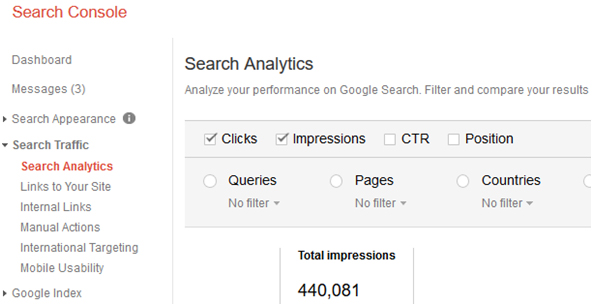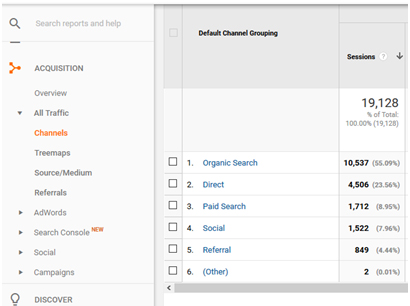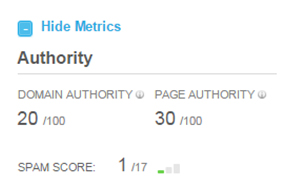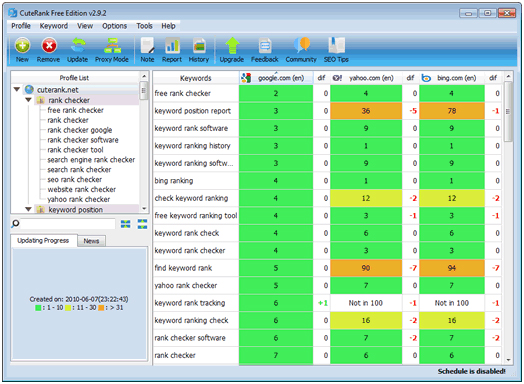
How to know if SEO is working is a question often asked, especially because SEO results doesn’t show up right away. Search engine optimization (SEO) when done correctly is an investment that continues to pay dividends, and who doesn’t love getting more than they invested? However, SEO does take time to produce results.
How long does SEO Take?
It really depends on how competitive your keywords and overall market is. A realistic SEO results time frame is usually 3 to 6 months; however, if you’re in a highly competitive market it can take as much as a year. Many businesses take a long-term approach to SEO because they know the value and the potential for getting a high return on investment. When SEO works, you can expect to see an increase in traffic, leads and sales on a more consistent basis.
How to measure SEO performance
If you have been doing SEO for a month or a few months and you’re not showing up on the first page for your keywords just yet, don’t worry; it doesn’t mean that your SEO is not working. To know if your SEO is working there are a few key SEO performance metrics that you must track.
1. Impressions
Impressions are the number of timesthat your website shows up in search results without being clicked on. Impressions are a good place to start, because when you start optimizing for keywords you won’t land on the first page right away in most cases. You will most likely start on lower pages, so although you may show up in searches, you’re less likely to get clicked on. The most important thing is that you know you have begun to rank for those keywords and then you can continue your efforts to get to the first page. You can check your organic impressions through Google Search Console. To do so:
- Login to Google.com/webmasters
- Select the website you wish to check your organic impressions for
- Click on search traffic
- Click on search analytics
- Check the impressions box. It generally shows you data for the last 28 days or as much as 90 days.
- Review total impressions (note it is important to benchmark these numbers at the start of your SEO project so that you can compare and track progress)

You can even compare periods to see if there’s an uptick. If you have an increase in your organic search impressions, that’s a very good indicator that your SEO is working.
2. Traffic from Organic Searches
Let’s face it, rankings are not the ultimate goal of SEO. Your ultimate goal is to increase traffic and sales. Therefore, an increase in organic traffic is a great sign that your SEO is performing. It is important to look at organic traffic data specifically and not overall traffic, due to other activities outside of SEO that may be having an effect on your results. On the flip side, if there’s a downtick in organic traffic, it can be a good indicator that your SEO is not performing very well.
When looking at traffic, it’s important to compare the same period from the previous year to really gauge your SEO success.
To view your organic traffic via Google Analytics.
- Login to your Google Analytics account for the website you wish to analyze
- Go to Acquisition
- Click on Channels
- Review Organic Search Traffic

3. Number of Pages Ranking
Another great indicator of your SEO performance is the number of pages you’re ranking for. An increase in the number of pages that you’re ranking for means that your SEO is working, a decrease on the other hand could mean that you have a problem on your hands, which can either be due to penalties or indexing issues. If you have an indexing issue it means that specific pages that you have optimized are not listed in search engines.
This could be a result of search engines’ inability to crawl your website effectively. The more pages you optimize the greater the number of pages you should be ranking for, even if you get just one click per page.
You can also track the number of pages you’re ranking for in Google Search Console.
Follow the steps above for impressions, then select pages to view all the pages that are ranking for SEO.

4. Number of Backlinks
Just as important as on page optimization is link-building. The amount of quality backlinks (links from other websites to your website)you have matters. This is also a key performance indicator. If you’re doing good SEO, it’s natural that you will have an increase in the amount of backlinks to your website. If you’re outsourcing your SEO, this is also a metric that you should track as a sign that they are doing what’s necessary to get you better rankings and good SEO results.
Monitor your backlinks to see if it there’s an increase or decrease, or if the quantity of links you have and the number of root domains that those links are coming from is stagnant.
It’s also important to monitor the quality of those links. Low quality links are just as bad as not getting any links at all, and could potentially hurt you. There are several tools such as Majestic SEO & AHREFS that helps you track your website backlinks and also provide a score on the quality of your links.
An easy way to monitor your backlinks is to go to www.opensiteexplorer.org
- Enter your website address
- Review your established links
- Total links refers to the number of backlinks you currently have
- Root domains means the number of individual websites that are linking back to you

Again, it’s important to benchmark these metrics at the start of your SEO project so that you can track your progress.
5. Referrals from other websites
An important part of SEO is your link-building strategy. If you are following link-building best practices and you’re seeking out links from reputable, relevant websites, naturally you should see referral website traffic from those websites as well.
To check referrals from other websites in Google Analytics
- Login to Google Analytics
- Select the website you wish to analyze
- Go to acquisition
- Select channels
- Review referrals

6. Domain & Page Authority
An early indicator of how well your website stacks up against your competitors is your website’s domain authority and page authority. You’ll have a score created by Moz, an SEO software company that rates the strength of your website’s overall domain and individual web pages from 1-100 using a logarithmic scale. The higher your score the more authority your site has. A major factor of your domain and page authority is your backlink profile. Therefore, if you’re applying good on page and off page SEO, your domain authority will likely increase as well.
To track your website’s domain authority and page authority:
Go to www.opensiteexplorer.org
- Enter your website address
- Review the scores under domain authority & page authority

7. Brand Mentions
Good SEO should increase your company’s visibility and exposure. As you become more visible you create more awareness of your brand which should result in an increase in the amount of searches online for your company’s name as well as mentions as users research more about your company.
You can monitor brand mentions via tools such as Google Alerts.
- Go to https://www.google.com/alerts
- Enter one name at a time that you would like to monitor. E.g. your company name, product names, CEO names etc.
- Select show options to change your settings, including how often you would like to be notified
- Click create alert to get notified each time one of your names is mentioned online

8. Conversions
At the center of why we invest in SEO is the results that we are hoping for: more traffic, leads and an increase in revenue. Conversions – the percentage of people that take the action that you want them to take when they arrive on your website -are the ultimate performance indicators. Are you getting more leads?Is there an increase in phone calls?Is your email contact list growing?Are you seeing an increase in sales for ecommerce websites? These metrics will not only let you know your SEO is working but it will help you determine your return on investment.
9. Rankings
I’m listing ranking last because most businesses tend to focus too much on rankings, when the ultimate goal is to increase traffic, leads and sales. Before embarking on an SEO campaign, it’s important to check your rankings for the list of keywords that you wish to target. This will help you in the future to check your SEO results and performance by monitoring whether your rankings are going up or down or simply remaining stagnant on a weekly or monthly basis.
It’s also important to measure your ranking to determine whether you’re pursuing the right keywords. If after a 30 or 60-day period, you’re still not ranking for the keywords you’re targeting, it may be a sign that you’re targeting very competitive keywords and you need to determine whether it makes sense for you to continue to focus on those keywords. It’s a lot easier to get keywords that are already ranking to the first page.
There are many tools out there to check rankings.I use Cuterank.net. If you’re monitoring only one website at a time you can use it for free, and I find it to be pretty accurate.
Once you have downloaded this tool:
- Create a new profile for the site you would like to monitor rankings for
- Copy and paste your list of keywords or upload a text file
- Select the search engines you would like to track
- Click finish and it will run a ranking report, which you can download

As you monitor your rankings, the tool will also let you know if your keywords are increasing (+) or decreasing (–) in ranks.
In conclusion, I think a wise man once said that you can’t improve what you don’t measure.
Therefore, measuring your SEO success is critical if you are to maximize performance.
I would go so far as to say that it’s one of the key activities that determine whether a site makes it to the first page or not.
SEO takes time, but it’s also well worth the effort.
How do you measure your SEO results? Have Questions? Tell us in the comments below.
Save
Save